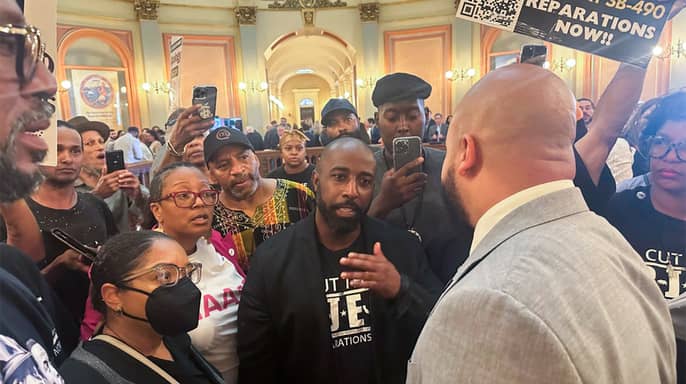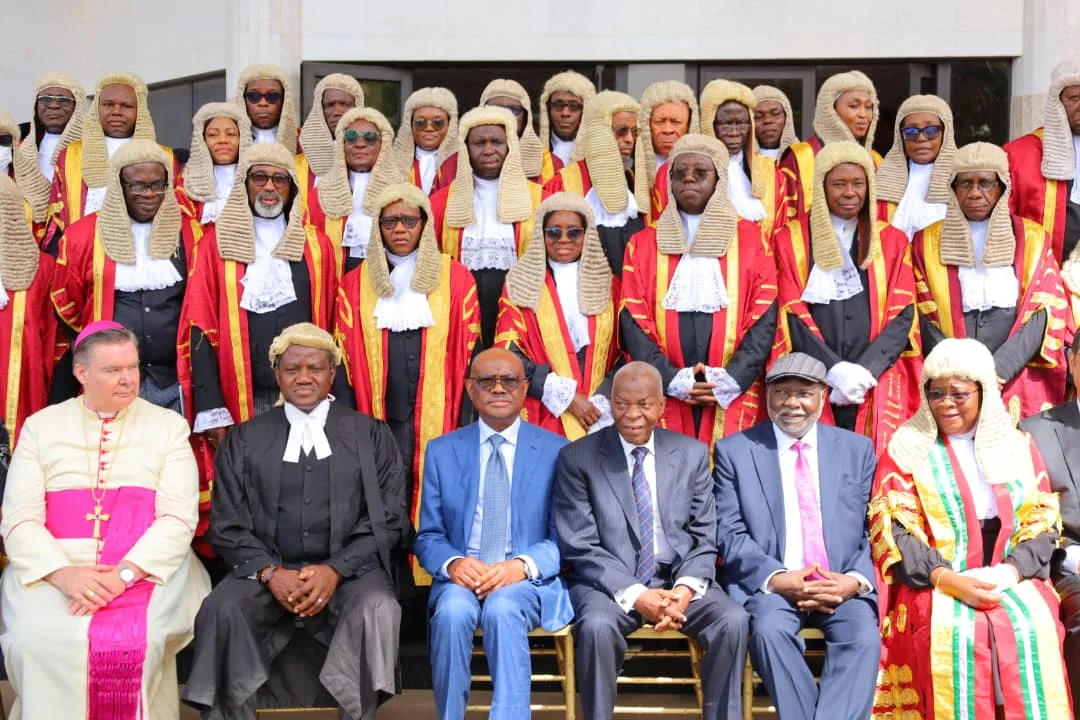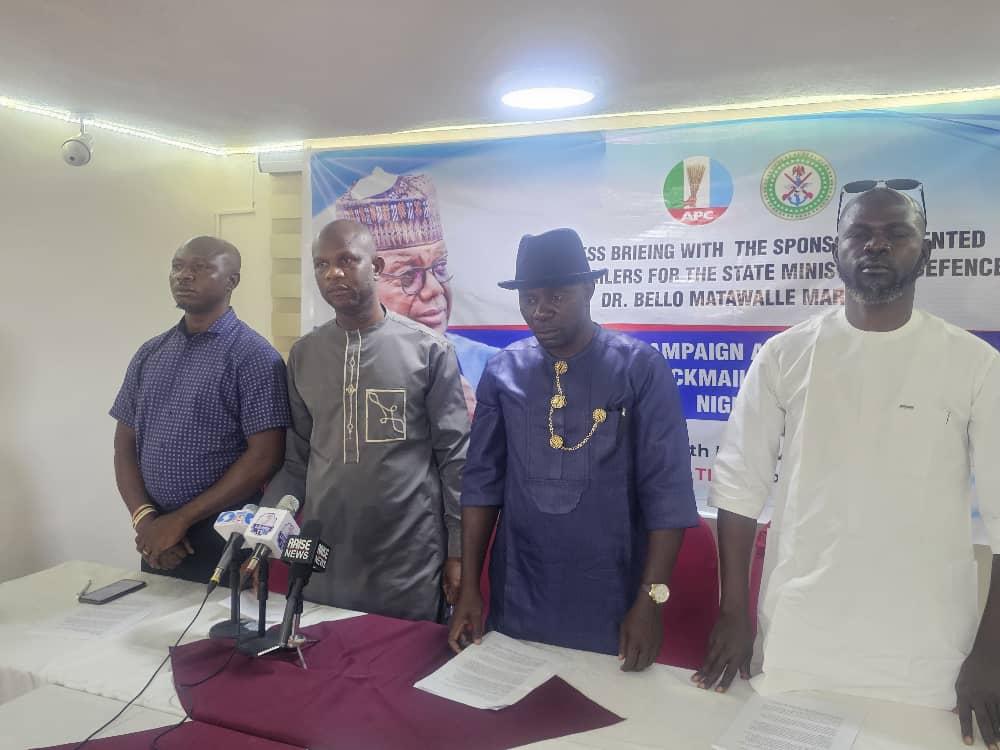Tensions flared at the California State Capitol over the weekend as protests erupted following the shelving of two significant reparations bills aimed at addressing the historical injustices faced by Black Americans. The legislation, which sought to create a state fund and agency for reparations, was pulled by lawmakers amid concerns about potential vetoes from Governor Gavin Newsom.
Senate Bill 1331, authored by Democratic state Senator Steven Bradford, aimed to establish a new state fund for reparations, while Senate Bill 1403 proposed the creation of a state agency to oversee eligibility and implementation.
These measures were pivotal to some lawmakers’ efforts to rectify the legacy of systemic racism that has perpetuated disparities in housing, education, and health for Black Californians.
Despite the Democratic majority in the California legislature passing several bills intended to address past racial injustices, none included direct financial compensation for African Americans. The failure to advance the reparations bills sparked outrage among advocates and community members.
Bradford expressed disappointment at the decision to halt the bills, revealing that concerns about a potential gubernatorial veto played a crucial role. “We’re at the finish line, and we owe it to the descendants of chattel slavery and Black Californians to move this legislation forward,” he urged.
Lori Wilson, chair of the California Legislative Black Caucus, acknowledged the challenges faced in advancing the bills, noting that they require further refinement. “We knew from the very beginning that it was an uphill battle,” she stated, emphasizing the need for a multiyear effort to realize the goals of the legislation.
On the final day of the legislative session, supporters of reparations gathered at the Capitol, demanding lawmakers take a vote on the stalled proposals. The Coalition for a Just & Equitable California criticized the Black Caucus for not bringing the bills to a vote, despite having sufficient support.
“This type of betrayal cannot go unanswered. There must be a political price to pay,” the Coalition declared on social media. They emphasized their determination to pursue reparations, drawing on the legacy of their ancestors who contributed to the state and nation.
The Republican Interest reports that the Republican Assembly Member Bill Essayli attempted to revive the conversation by motioning for a vote on the bills, though his request was not seconded by any colleagues. Essayli accused Democrats of evading accountability, saying they had promised reparations but failed to act when it was time for a recorded vote.
“Politicians cannot make promises to the people and then hide when it’s time to stand by those promises,” he asserted. He advocated for a public debate on the issue, emphasizing the need for transparency from elected representatives.
While Governor Newsom has not publicly commented on these specific reparations proposals, he did approve a nearly $300 billion budget in June that allocated up to $12 million for reparations initiatives. However, the budget did not detail how the funds would be utilized, and his administration has indicated opposition to certain measures.
As the fallout from the decision to shelve the reparations bills continues, advocates remain steadfast in their call for justice and accountability, signaling that the fight for reparations in California is far from over.





